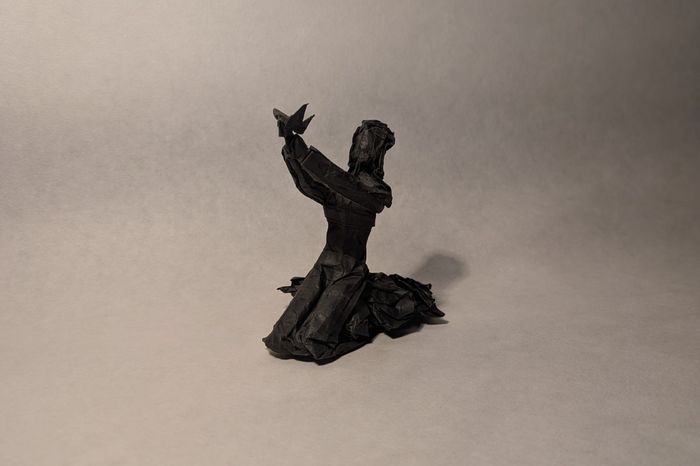Poppy day: Cambridge’s armistice carnival
For Remembrance Day, Otto Bajwa-Greenwood explores a forgotten Cambridge tradition through Hughes and Plath

Observed on 11th November each year, Armistice Day is a national moment of commemoration and contemplation for those who gave their lives in ‘The Great War’. The day is typically marked by moments of silence, wreath laying ceremonies, and remembrance services, all intending to remind each generation of the importance of peace. However, while these traditions remain in Cambridge, in the typical spirit of the university students have historically chosen to embrace remembrance in a different way.
“University students have historically chosen to embrace remembrance in a different way”
During the week leading up to Armistice, the serene streets of Cambridge were transformed into a scene of exuberant festivity. In a series of events known as ‘rag raids’, the university students, resplendent in flamboyant costumes, paraded through the city shaking tins and brandishing buckets in an attempt to raise funds for the Royal British Legion in honour of ‘Poppy Day’. However, while the ceremony was transformed into a spirit of goodwill – the spectacle serving charitable ends – the festivities were originally started for quite different reasons. In an attempt to quell ‘Town and Gown riots’ after the disarray of the 1890s, ‘rags’ were organised as an opportunity to direct violence away from people. While this initially manifested itself through vandalism, as the years passed by, rags were used for comedic purposes. These included the celebration of a student’s euphemistic ‘death’ (being sent down), to celebrate the opening of Tutankhamen’s Tomb in 1924, and mock marriages between the students. Shortly after the First World War, during a rag raid, a German gun, gifted as ‘a trophy to Jesus College’, was even stolen ‘one night by Caius College men’ and relocated into their accommodation. Nevertheless, from 1921 the celebrations became more organised. As journalist Enid Porter reported, the rags became “highly organised affairs, with parades of decorated floats through the streets, cabaret shows in College courts, battles on the river between “armies” on punts […], and every imaginable diversion”.
“As written about in Ted Hughes’ diary in 1956,“everything short of aggressive violence is legal on the 11th of November””
While the Poppy ‘rag’ day died out in 1966, after a diversion of funds took money away from the British Legion, the historic memory of the day lives on in the archives. Interestingly, some of the most prominent accounts come from the famed poets Ted Hughes and Sylvia Plath. As written about in Ted Hughes’ diary in 1956 as he and Plath approached the city centre from Newnham, “everything short of aggressive violence is legal on the 11th of November”. Hughes goes on to amusingly report, in extension of his details of the students attempts to acquire donations from the unsuspecting public, a description of “girls robed like Greeks” at the top of Trumpington Street, who wore “twig T.V. aerials sticking out of the top of their heads” instead of the usual laurel wreath.
Sylvia Plath’s recollection corroborated his accounts. In an unpublished article sent to The New Yorker, Plath outlines how “five or six Cambridge University students” – each “uniformed in white coat and red fez” – were “supplying artificial red poppies and a rapid car-polishing in return for contributions”. However, diverting from Hughes and homing in on the carnivalesque qualities of the day, Plath’s chronicle specifically concentrates on the disparity of the ‘rag’ day scene from the more conservative atmosphere of Cambridge. She noted how “we were rather startled to find decorum turned, as it were, completely topsy-turvy: to see students parading in pyjamas and paisley dressing-gowns under the pinnacles of King’s Chapel”.
Armistice Day holds deep importance as a time to honour those who lost their lives during the First World War. It connects generations, reminding us of the resilience, courage, and humanity that emerged amid devastation. However, as Cambridge’s old traditions have taught us, remembrance need not always be sombre. While reflection is vital, community organisation and playful spirit can transform mourning into gratitude and collective strength. In this way, Armistice Day becomes not only a tribute to the fallen but also a celebration of peace and the shared responsibility to uphold it for future generations.
Footage of the 1951 Poppy Day Rag can be found here
 News / Judge Business School advisor resigns over Epstein and Andrew links18 February 2026
News / Judge Business School advisor resigns over Epstein and Andrew links18 February 2026 News / Hundreds of Cambridge academics demand vote on fate of vet course20 February 2026
News / Hundreds of Cambridge academics demand vote on fate of vet course20 February 2026 News / Petition demands University reverse decision on vegan menu20 February 2026
News / Petition demands University reverse decision on vegan menu20 February 2026 News / CUCA members attend Reform rally in London20 February 2026
News / CUCA members attend Reform rally in London20 February 2026 News / Caius students fail to pass Pride flag proposal20 February 2026
News / Caius students fail to pass Pride flag proposal20 February 2026










